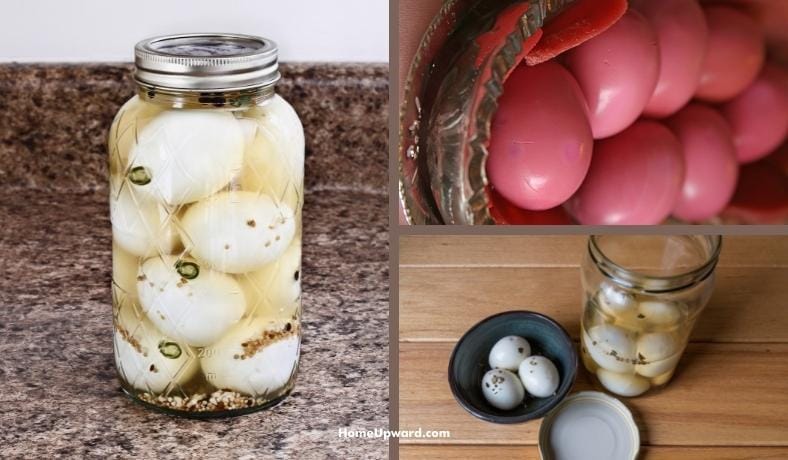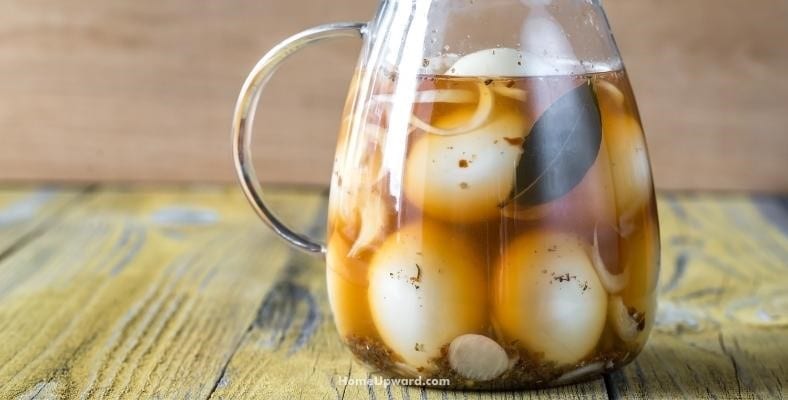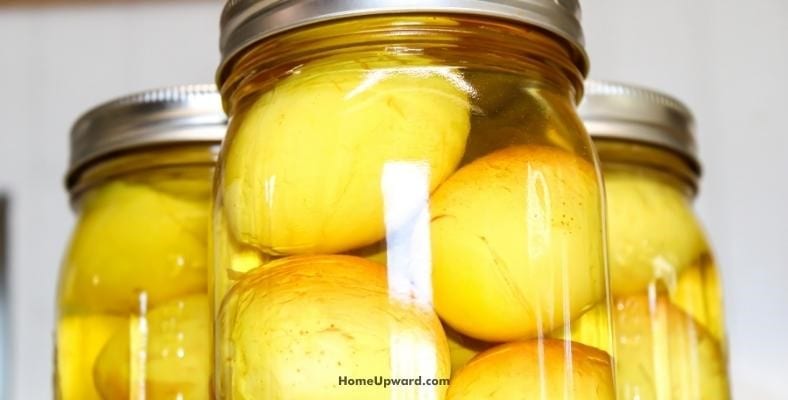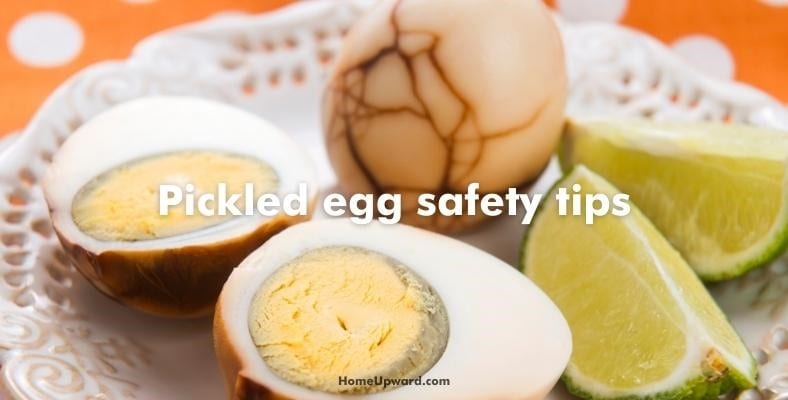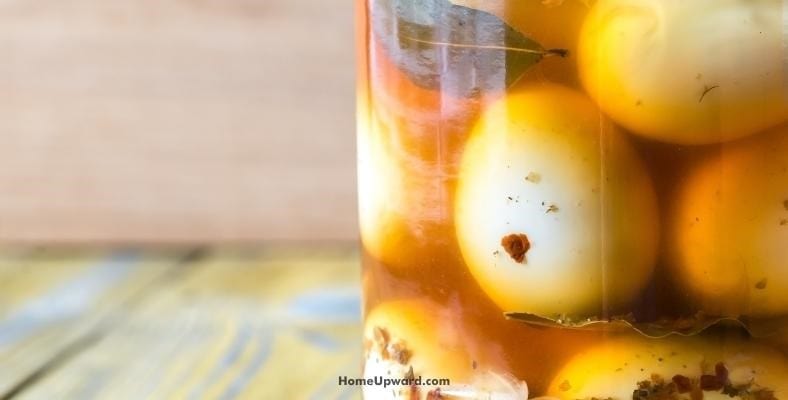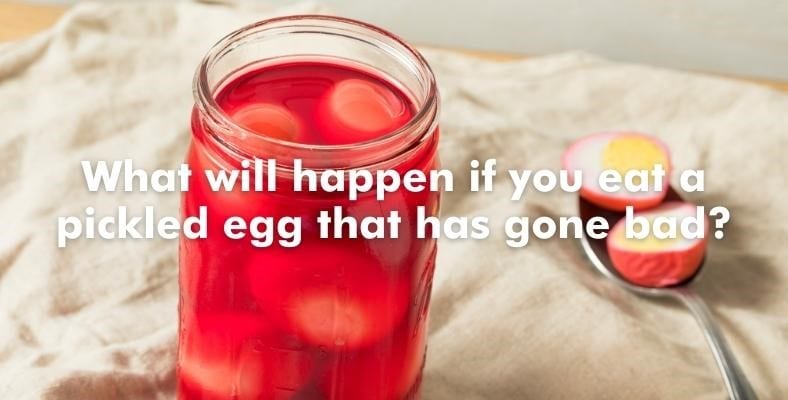Contents
How Long Will Pickled Eggs Last?
If kept in a sealed jar, pickled eggs can last for a month or longer, but if the jar is not sealed tight or if it is a store-bought jar that has been opened, it is safest to consume the eggs within one week.
How Long Do Pickled Eggs Last in the Refrigerator?
Pickled eggs are best stored at temperatures 34 degrees (F) and below, and should not be stored outside of refrigeration, though it is not good for them to be frozen or at ambient/room temperature for more than two hours.
How Long Will Pickled Eggs Last Outside the Fridge?
Pickled eggs have a finite shelf-life outside of the fridge. Per CDC guidance, pickled eggs should not be at ambient temperature for more than two hours. This is mostly due to the fact that pickled eggs, when not cooled properly, can cause botulism, a serious illness that can cause damage to the body’s nerves, and even affect your ability to breathe.
How Can You Tell When Pickled Eggs Are Bad?
Generally speaking, pickled eggs will take on the smell of the pickling vinegar they are residing in. Should you notice any changes to the odor, it’s best to toss them out and be safe rather than sorry. Besides the scent, changes in the texture of the eggs can be a stronger indicator that they are going bad. If they appear to have a rubbery texture, it’s better to throw them out.
How to Store Pickled Eggs
There are several ways to store pickled eggs. They can be pickled and kept at room temperature or stored in a glass or plastic container in the fridge. Freezing is not a good option because it will reduce the quality of the eggs.
Pickled Egg Safety Tips
Follow these tips to avoid getting food poisoning from improperly cooked eggs.
1. Keep Everything Clean
When it comes to doing anything in the kitchen, cleanliness is everything. Be sure to use glass jars that have been washed with hot water and detergent. You’ll want to make sure your containers stay hot until you are ready to deposit the eggs into them, and you can achieve this by keeping them submerged in hot water.
Also, be sure to clean any necessary utensils with hot soap and water, and make sure your hands are squeaky clean before you begin.
2. Avoid Room Temperature
For safety purposes, never let your eggs reach room temperature, as this will significantly increase your risk of foodborne illness. Make sure they remain at a cool temperature until you’re ready to pickle them.
3. Keep Boiled Eggs Intact
While keeping them intact, the most reliable preparation method is to make a pinhole on the larger end of the eggs, place them in a single layer in a pan, then submerge them in water until the water is approximately an inch above the eggs. After bringing the water to a boil and repeating the necessary heating and cooling process, this will ensure the shell comes off properly.
4. Patience Equals Better Taste
Though pickling eggs is not the fastest process in the world, patience is critical when it comes to successfully pickling your eggs. For best results, leave them in your pickling brine for 14-28 days. This is especially true if the eggs you’re pickling are large. If you have smaller eggs, the recommended wait time is 7-14 days of seasoning. But, be careful not to wait too long, as this can cause your eggs to get rubbery.
What Types of Containers Are Best for Pickled Eggs?
For best practices and the best results, glass jars will be the safest to use when pickling eggs. Metal should never be used, as the acids and minerals from the pickling solution can affect the metal over time.
Plastic containers should also not be used unless they are of food-grade quality. However, be forewarned: plastic containers may absorb the smell, and depending on the quality of the plastic, it may not withstand the high heat at processing time from the pickling brine.
Can You Freeze Them?
While less than ideal due to the inevitable changes in texture that the eggs will undergo, pickled eggs can be frozen for up to approximately one year if pickled properly.
When mixing your solution, add ½ tablespoon of dry egg powder and ½ tablespoon of water for each egg added to the pickling mixture. (e.g., eight eggs would require four tablespoons of dry egg powder and four tablespoons of water.)
How to Properly Keep Store-Bought Eggs
If you purchase store-bought pickled eggs, you’re in luck: they can be stored at ambient temperature for a few months so long as they are unopened and have a tight-sealing lid on the container. It is recommended that you keep them for no longer than four months. However, once the container has been unsealed, eat them quickly, as they will need to be refrigerated and used within one week of opening.
What Will Happen If You Eat a Pickled Egg That Has Gone Bad?
When eating pickled eggs that have spoiled, there is a high likelihood of foodborne illness. The most common disease that can occur is botulism.
Botulism appears when bacteria begin to grow on eggs that haven’t been pickled the right way.
Improper pickling is generally a result of one of two things: Improper storage or improper sterilization of processing utensils, both of which can lead to contamination that can make you very ill.
If you are pickling eggs yourself, always be sure to follow proper safety protocols to ensure you have high-quality, delicious eggs, and remember, when in doubt, throw them out!

